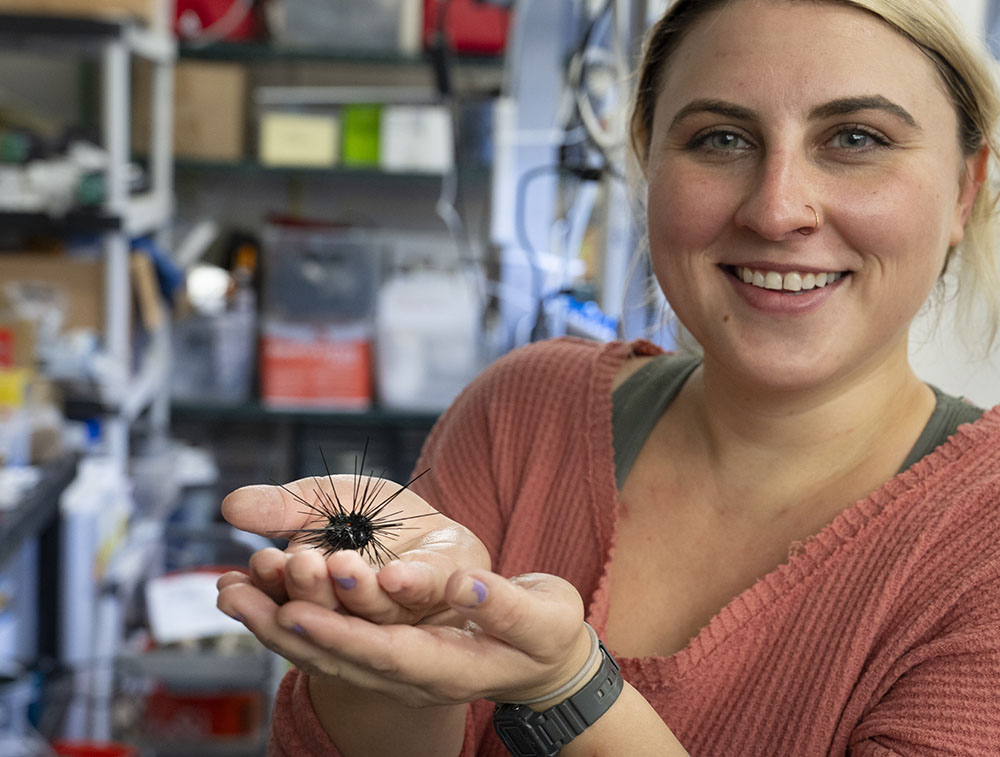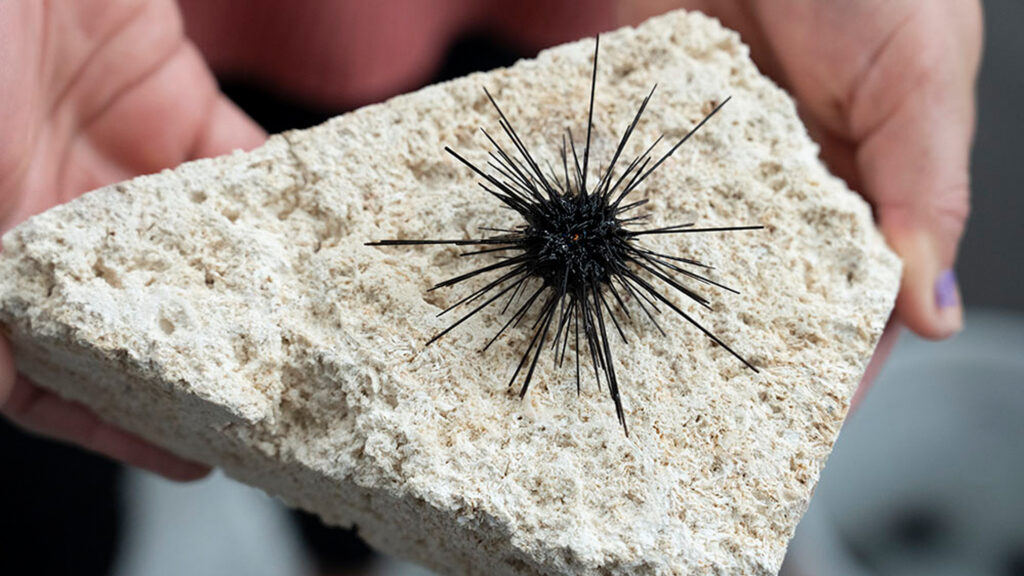By Dyllan Furness, The Florida Flood Hub
A parasite that devastated long-spined sea urchins in the Caribbean and Florida in 2022 has caused another die-off more than 7,000 miles away in the Sea of Oman.
The discovery, led by researchers at the University of South Florida College of Marine Science (USF CMS) and recently published in The ISME Journal, reveals how the spread of a microscopic pathogen threatens sea urchin populations and coral reefs around the world.
“Sea urchins play an important role in reef health by eating algae,” said Isabella Ritchie, a graduate student at USF CMS and first author of the new study. “When urchins and other herbivores die off, algae can take over and prevent coral from having access to light. A healthy reef tends to have a lot of herbivores.”

In the new study, Ritchie and her colleagues report that a single-celled organism called a ciliate, which was identified last year as the cause of a mass mortality event in the urchin species Diadema antillarum, is the same parasite currently afflicting Diadema setosum in the Sea of Oman.
“We’re tracking, almost in real time, the transglobal spread of a devastating marine disease,” said Mya Breitbart, USF Distinguished University Professor and a co-author of the study. Breitbart and Ritchie also co-authored the 2023 study that identified the ciliate as the cause of the 2022 die-off in the Caribbean.
About a year ago, Breitbart and her colleagues were contacted by researchers who reported mass mortalities of D. setosum in the Sea of Oman and wanted to collaborate to find the cause.
Breitbart’s lab received infected urchin specimens, and used genomic tests to confirm that the same ciliate from the Caribbean was present in the samples from Oman. They then demonstrated that the ciliate kills D. setosum in controlled environments.
“Not only were we able to determine that the ciliate was present in the samples of D. setosum from Oman, but we were able to purchase live specimens through the aquarium trade and demonstrate that they die when exposed to the ciliate,” Ritchie said.

To Ritchie’s surprise, some of the specimens they ordered through the aquarium trade arrived at the lab already infected with the parasite. Her team turned that setback into an opportunity. Using samples from the infected D. setosum specimens, they grew a microbiological culture of the ciliate (just as they did with D. antillarum samples in the prior study) and repeated the experiment with cultures isolated from both species. The results further solidified their findings.
D. setosum are widespread on reefs from the Mediterranean to Japan. Due to their abundance, researchers are concerned the disease is becoming a pandemic for sea urchins.
“This disease has the potential to spread,” Ritchie said. “It spread so rapidly in the Caribbean, which suggests it could spread quickly through the Pacific since D. setosum are so widespread.”
Questions remain about how the ciliate arrived in Oman. Ritchie’s collaborators are looking into hypotheses including accidental transportation on international ships, dive gear, or through the aquarium trade. Determining how the ciliate spreads may help mitigate future die offs.
Dyllan Furness is science communication manager for The Florida Flood Hub. This piece was originally published at https://www.usf.edu/marine-science/news/2024/sea-urchin-killer-spreads-to-new-species-region.aspx.
Sign up for The Invading Sea newsletter by visiting here. If you are interested in submitting an opinion piece to The Invading Sea, email Editor Nathan Crabbe at ncrabbe@fau.edu.



